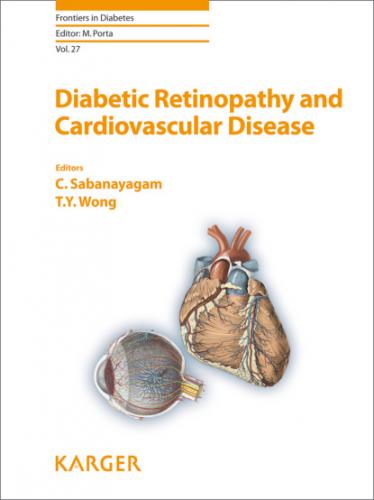26Gouni-Berthold I, Berthold HK, Mantzoros CS, Bohm M, Krone W: Sex disparities in the treatment and control of cardiovascular risk factors in type 2 diabetes. Diabetes Care 2008;31:1389–1391.
27Ryden L, Grant PJ, Anker SD, et al: ESC Guidelines on diabetes, pre-diabetes, and cardiovascular diseases developed in collaboration with the EASD: the Task Force on diabetes, pre-diabetes, and cardiovascular diseases of the European Society of Cardiology (ESC) and developed in collaboration with the European Association for the Study of Diabetes (EASD). Eur Heart J 2013;34:3035–3087.
28American Diabetes Association: 9. Cardiovascular disease and risk management: standards of medical care in diabetes-2018. Diabetes Care 2018;41(suppl 1):S86–S104.
29National Institute for Health and Care Excellence (NICE). Clinical Guideline 181: Cardiovascular Disease: Risk Assessment and Reduction, Including Lipid Modification. London, NICE, 2014.
30Kannel WB, McGee D, Gordon T: A general cardiovascular risk profile: the Framingham Study. Am J Cardiol 1976;38:46–51.
31van Dieren S, Beulens JW, Kengne AP, et al: Prediction models for the risk of cardiovascular disease in patients with type 2 diabetes: a systematic review. Heart 2012;98:360–369.
32Woodward M, Tunstall-Pedoe H, Peters SA: Graphics and statistics for cardiology: clinical prediction rules. Heart 2017;103:538–545.
33Hajifathalian K, Ueda P, Lu Y, et al: A novel risk score to predict cardiovascular disease risk in national populations (Globorisk): a pooled analysis of prospective cohorts and health examination surveys. Lancet Diabetes Endocrinol 2015;3:339–355.
34Karmali KN, Persell SD, Perel P, Lloyd-Jones DM, Berendsen MA, Huffman MD: Risk scoring for the primary prevention of cardiovascular disease. Cochrane Database Syst Rev 2017;3:CD006887.
35Montgomery AA, Fahey T, Peters TJ, MacIntosh C, Sharp DJ: Evaluation of computer based clinical decision support system and risk chart for management of hypertension in primary care: randomised controlled trial. BMJ 2000;320:686–690.
36Hall LM, Jung RT, Leese GP: Controlled trial of effect of documented cardiovascular risk scores on prescribing. BMJ 2003;326:251–252.
37International Diabetes Federation Clinical Guidelines Task Force. Global Guideline for Type 2 Diabetes. Brussels, International Diabetes Federation, 2012.
38British Cardiac Society; British Hypertension Society; Diabetes UK; HEART UK; Primary Care Cardiovascular Society; Stroke Association: JBS 2: Joint British Societies’ guidelines on prevention of cardiovascular disease in clinical practice. Heart 2005;91(suppl 5):v1–v52.
39World Health Organisation. Prevention of Cardiovascular Disease: Guidelines for Assessment and Management of Cardiovascular Risk. Geneva, World Health Organisation, 2007.
40National Vascular Disease Prevention Alliance. Guidelines for the Management of Absolute Cardiovascular Disease Risk. Canberra, National Vascular Disease Prevention Alliance, 2012.
41Backholer K, Hirakawa Y, Tonkin A, et al: Development of an Australian cardiovascular disease mortality risk score using multiple imputation and recalibration from national statistics. BMC Cardiovasc Disord 2017;17:17.
42Hippisley-Cox J, Coupland C, Brindle P: Development and validation of QRISK3 risk prediction algorithms to estimate future risk of cardiovascular disease: prospective cohort study. BMJ 2017;357:j2099.
43Bachmann KN, Wang TJ: Biomarkers of cardiovascular disease: contributions to risk prediction in individuals with diabetes. Diabetologia 2018;61:987–995.
44Gaede P, Hildebrandt P, Hess G, Parving HH, Pedersen O: Plasma N-terminal pro-brain natriuretic peptide as a major risk marker for cardiovascular disease in patients with type 2 diabetes and microalbuminuria. Diabetologia 2005;48:156–163.
45Hendriks SH, van Dijk PR, van Hateren KJ, et al: High-sensitive troponin T is associated with all-cause and cardiovascular mortality in stable outpatients with type 2 diabetes (ZODIAC-37). Am Heart J 2016;174:43–50.
46Soinio M, Marniemi J, Laakso M, Lehto S, Ronnemaa T: High-sensitivity C-reactive protein and coronary heart disease mortality in patients with type 2 diabetes: a 7-year follow-up study. Diabetes Care 2006;29:329–333.
47Scirica BM, Bhatt DL, Braunwald E, et al: Prognostic implications of biomarker assessments in patients with type 2 diabetes at high cardiovascular risk: a secondary analysis of a randomized clinical trial. JAMA Cardiol 2016;1:989–998.
48Looker HC, Colombo M, Agakov F, et al: Protein biomarkers for the prediction of cardiovascular disease in type 2 diabetes. Diabetologia 2015;58:1363–1371.
49Gerstein HC, Pare G, McQueen MJ, et al: Identifying novel biomarkers for cardiovascular events or death in people with dysglycemia. Circulation 2015;132:2297–2304.
50van der Leeuw J, Beulens JW, van Dieren S, et al: Novel biomarkers to improve the prediction of cardiovascular event risk in type 2 diabetes mellitus. J Am Heart Assoc 2016;5:pii:e003048.
51Knowles JW, Ashley EA: Cardiovascular disease: the rise of the genetic risk score. PLoS Med 2018;15:e1002546.
52Cox AJ, Hsu FC, Ng MC, et al: Genetic risk score associations with cardiovascular disease and mortality in the Diabetes Heart Study. Diabetes Care 2014;37:1157–1164.
53Goldstein BA, Navar AM, Carter RE. Moving beyond regression techniques in cardiovascular risk prediction: applying machine learning to address analytic challenges. Eur Heart J 2017;38:1805–1814.
54Jonnagaddala J, Liaw ST, Ray P, et al: Identification and progression of heart disease risk factors in diabetic patients from longitudinal electronic health records. BioMed Res Int 2015;e636371.
Prof. Jonathan Shaw
Clinical and Population Health
Baker Heart and Diabetes
